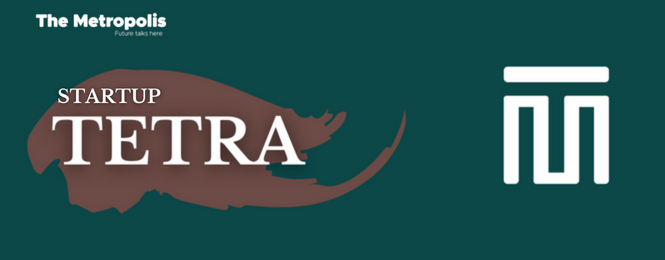The southern coastal region of Bangladesh has always suffered from numerous natural disasters. People, living there, are always in a battle for survival. But the most important resource of survival, safe drinking water, is hard to find there. The little natural supply, they have access to, is completely saline! They have no choice but to survive on that. They suffer from long-term health diseases as a result of consumption of this saline water for years.

Realizing the gravity of this serious issue, 4 like-minded friends, Sabrina Rashid Sheonty, Shabbir Karim Rudro, Asif Hossain Tamim, and Mubasshir Tahmid, all hailed from different departments of Bangladesh University of Engineering and Technology (BUET), decided to do something about it and came up with the idea of a product that can desalinate water using just solar energy. The design turned into a prototype; the pyramid-shaped Solar Still. The device could desalinate 8 to 10 liters of water in a day, which was enough to fulfill the drinking water demand of a small family of 4 members. The uniqueness of the product was that it used only renewable solar energy which made it very energy and cost-efficient. Another important thing was that the product was portable and designed for a single household, hence, it can be easily moved from one place to another. With this product, the idea turned into a startup, TETRA.
Soon, this startup started to grow and the founders decided to make sure that their story reaches the ears of people beyond the borders. In March 2018, they managed to showcase their idea internationally at the Hult Prize regional summit in Kuala Lumpur, Malaysia. As soon as the words reached outside, they realized that they needed support back home to turn their startup into a sustainable business.

In May 2018, Unilever Bangladesh and UNDP Bangladesh hosted the Safe Water Challenge in Dhaka, a pitch event where they were looking for ideas that would solve the salinity problem. Team TETRA came out as the winner and secured their first grant funding worth 5 lac taka.

Soon this success story was in the local newspapers, and a lot of organizations and people started to reach out to team TETRA. They received a grant from ‘Aqua for All’, a Dutch NGO, for the Pilot Implementation of their products. Later they were invited to showcase their progress in the National Dialogue on United Nations Sustainable Development Goal 6 (Clean Water & Salination), among national leaders in the industry and well-established startups.
However, the real work soon began after that and Team TETRA found themselves in the daunting task of turning their idea into an actual product. In late 2018, they started working on installing their devices in the affected regions. After the pilot implementation, some design changes were made by the Research & Development (R&D) team before going into full fledge production. Talking about this stage, one of the co-founders Sabrina Rashid Sheonty said, “we had to do paper works, allocate budgets, take part in meetings, present KPIs and business model canvas to the investors. We outsourced some of our workloads and we also hired a few people part-time. This expanded our jobs as well. We learned valuable people skills, as we delegated tasks and funds and received and analyzed reports of the work done by others.”

The ‘target marketplace’ was located so remote without any road connection that products were shipped in boats, then carried by hand, and finally assembled in people’s houses. As mentioned by Sheonty, “Life was hard in those regions, but at least we could put smiles on some of their faces. And that made those perilous journeys all worth it.”
TETRA is now operating with 3 types of modules – single household, community, and entrepreneurs. The household model is suitable for a single-family only and it costs 20 thousand takas. However, TETRA is planning to move to a subscription model for this, taking 1 thousand takas per month from each household. The community-scale device is suitable for at least 5 families. The device costs 40 thousand takas, so it means each family would need to pay 8 thousand takas only. TETRA is also offering convenient EMI (equal monthly installment) packages to make the device affordable for low-income communities. The community-based devices are used by local entrepreneurs to sell water in their neighborhoods. In these devices, the production of each liter of desalinated water costs only 13 paisa. The local entrepreneurs can sell 20 liters of water to a family every day for a rate of 500 takas a month to build a sustainable business model for themselves. TETRA has installed several devices in Khulna, Satkhira, and Munshiganj.
TETRA is now working diligently to acquire patents for its products. Once the patent is granted, it is planning to scale up and go for full fledge operation. Then it expects to reduce the capital cost of all the devices and offer a more attractive package for its customers.
Look out for TETRA! They are going to disrupt the desalinated potable water device market and save millions of coastal people’s lives soon.



